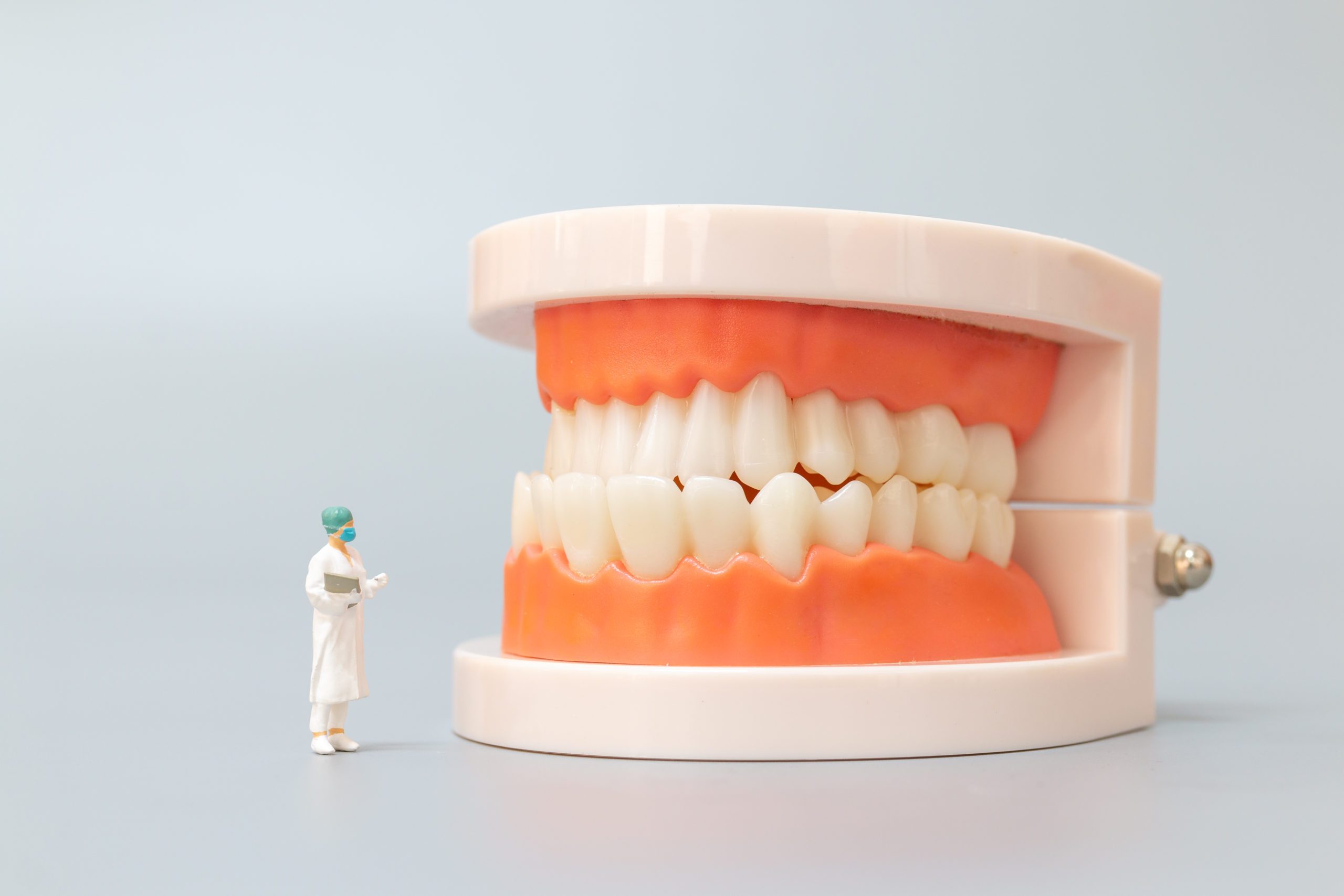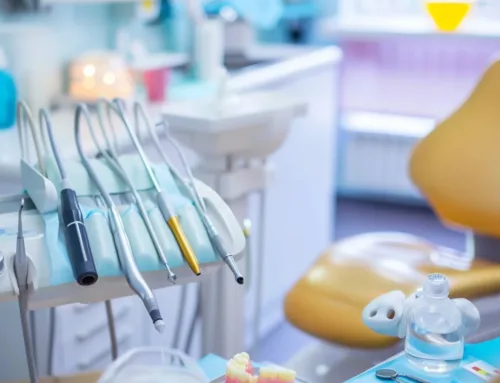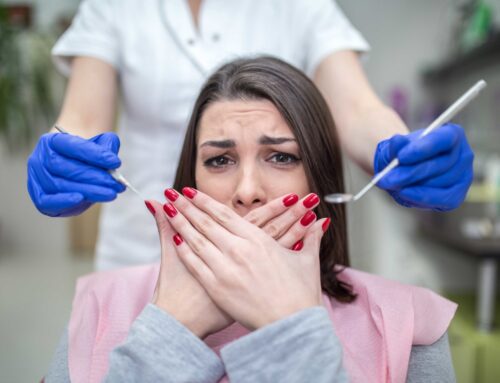Understanding & Preventing Tooth Grinding
While it is a common occurrence for many people, tooth grinding is not something that should be ignored or allowed to persist. There are many dental health issues that can arise from the grinding of the teeth, and if left untreated, these can progress to more serious conditions.
Keeping our teeth strong is an important part of maintaining a positive state of overall health, but sometimes things can occur without our immediate knowledge that can have a detrimental effect on our teeth. Tooth grinding is an example of one of these, and while for some people it can be a minor annoyance, for others it can become a major dental problem.
Handling tooth grinding, which is a medical condition known as bruxism, at the earliest opportunity is critical to preventing larger issues from developing, so it’s essential that you are aware of the warning signs of tooth grinding and how you can take steps to prevent it. At this point you may be wondering just why tooth grinding occurs in the first place. Let’s explore some of the underlying causes that result in grinding of teeth, and why you may not even be aware that you’re doing it.
Why Do Some People Grind Their Teeth?
There are many reasons why someone might grind their teeth, and these vary depending on whether the person grinds their teeth while awake during the day, or while asleep at night. As one might expect, two major causes of daytime teeth grinding are excessive stress and general anxiety. Stress and anxiety can have many detrimental effects on the body, such as tight muscles, headaches, insomnia, and others. As stress or anxiety causes our body to tense up, it can result in the unintentional clenching of the jaw which in turn makes the teeth grind against each other.
Nighttime teeth grinding, on the other hand, is more often linked to some other type of dental health issue. Most commonly, these are such things as missing or misaligned teeth, or bite pattern problems. In addition, tooth grinding during the night could also be related to a sleep disorder like sleep apnea. Sleep apnea occurs when natural breathing patterns of sleep are disrupted by airway restrictions, irregular muscular contractions, or a combination of these two.
Whether you’re experiencing tooth grinding at night or during the day, the problem can be exacerbated by certain types of lifestyle aspects, such as excessive caffeine intake, drinking alcohol, and any method of tobacco use. In the event that any of these are a part of your lifestyle, making adjustments to reduce or eliminate them from your day to day life will not only work to alleviate the likelihood of tooth grinding, but also have a significant impact on your overall state of health and well-being.
How Can You Tell If You’re Grinding Your Teeth?
Knowing for certain whether or not you are grinding your teeth, particularly at night, may not happen until your next dental appointment when your dental hygienist or dentist performs a thorough checkup and exam. However, there are many warning signs that you should be aware of that can help identify the possibility of tooth grinding earlier.
The top telltale sign of tooth grinding is the presence of a general soreness in the jaw or dull headache, particularly in the mornings for nighttime tooth grinders. As the muscles exert pressure on the teeth and jaw, constant or frequent grinding often results in aches and pains in the jaw, neck, and head.
Another sign that may raise suspicion is someone else noticing the noise created by tooth grinding while you sleep. Also, if you start to notice your teeth have rougher surfaces or edges that you didn’t notice before, you’ll want to book an appointment for a checkup and exam as soon as possible. This wearing of the teeth can rapidly become a major problem if left untreated.
Negative Effects Caused by Tooth Grinding
Although headaches and soreness are reason enough to seek treatment for tooth grinding, there are several other negative health effects that can occur as a result of daytime or nighttime teeth grinding. For example, for anyone who has had restorative dental work in the past, such as fillings, crowns, bridges, dental implants, etc., tooth grinding can result in serious damage to these repairs.
Furthermore, excessive tooth grinding can end up resulting in such rapid and significant wearing of the teeth that the patient will require those types of restorative dental procedures in order to repair the damage. The worst cases of tooth grinding can result in severely worn, loose, broken or cracked teeth, sometimes necessitating the full extraction of the affected teeth.
Preventive Measures for Tooth Grinding
It is for these reasons that taking preventive action to avoid the short-term and long-term negative effects of tooth grinding is so important. Here are some ways to stop daytime or nighttime teeth grinding, as well as to prevent it from occurring in the first place.
Addressing Sleep Conditions
Treating tooth grinding is done by treating the underlying health conditions that lead to it. For patients whose nighttime tooth grinding is a result of sleep apnea, this begins with a sleep analysis where specialists will use a series of tests and diagnostics to evaluate your normal sleep patterns. From this analysis, they will recommend a treatment option to correct your sleep apnea.
Treating sleep apnea typically includes the use of a CPAP (Continuous Positive Airway Pressure) machine, which produces a steady stream of air into a mask that surrounds your nose and mouth while you sleep. This air pressure helps to give you an uninterrupted breathing pattern while you sleep, avoiding the stopping-and-starting that you would normally experience and dramatically improving your quality of sleep. This will in turn work to prevent the tooth grinding and jaw clenching that is associated with sleep apnea.
Reduce Stress and Manage Anxiety
As high stress levels and feelings of anxiety can cause daytime teeth grinding, as well as contribute to sleep disorders, taking steps to introduce stress relief tactics into your lifestyle will be beneficial in both situations. Increasing the frequency of exercise, getting better quality sleep, and mindful relaxation exercises are all excellent ways to lower stress levels, but each person should focus on what works best for them.
Lower stress levels and reduced overall anxiety aren’t just helpful in preventing tooth grinding, but many other health problems as well. Taking action to fight stress will certainly have far-reaching effects that go way beyond your dental health, and so we encourage you to take this to heart even if you’re not the one who is personally dealing with tooth grinding.
Wear a Nighttime Mouthguard
While other treatments are taking place to address the root causes of tooth grinding, your dentist may recommend that you wear a dental mouthguard, particularly during the nighttime. Nightguards provide a barrier against tooth-on-tooth contact and prevent the harmful effects of tooth grinding by cushioning the pressure and stopping the premature wearing down of your teeth.
Most dental night guards are low-profile and very comfortable to wear, and therefore won’t have any noticeable impact on your ability to fall asleep. In fact, you may even forget you are wearing it a lot of the time.
See Your Dentist Regularly
Aside from these other treatments and preventive measures, the best things you can do to avoid problems related to tooth grinding is to ensure that you’re following a regular schedule for dental checkups. Each time you’re in the dental chair your hygienist and dentist will conduct a complete examination of your teeth and look for any abnormalities or initial warning signs that there may be something wrong. Plus, you should always be sure to book an early appointment if you suspect that you may be having any type of dental problem, including tooth grinding. Early detection means early treatment, and subsequently a more positive outcome.
Don’t Just Live with Tooth Grinding, Book Your Appointment Today
Tooth grinding is not something to be ignored or simply lived with. As we discussed, the effects can be quite serious if left to progress unchecked. If you believe that you may have a daytime or nighttime teeth grinding problem, or perhaps some other dental concern, contact the team here at Georgian Dental today to arrange for your next visit. We will be glad to assist you and form a treatment plan that is tailored to your specific needs. We look forward to seeing you soon!
Appointment Request
If you’re interested in any of our procedures, and would like to meet with one of our dentists to discuss options, costs and get additional information, complete this short form and we’ll give you a call to arrange for a no-obligation appointment at our Barrie clinic.










